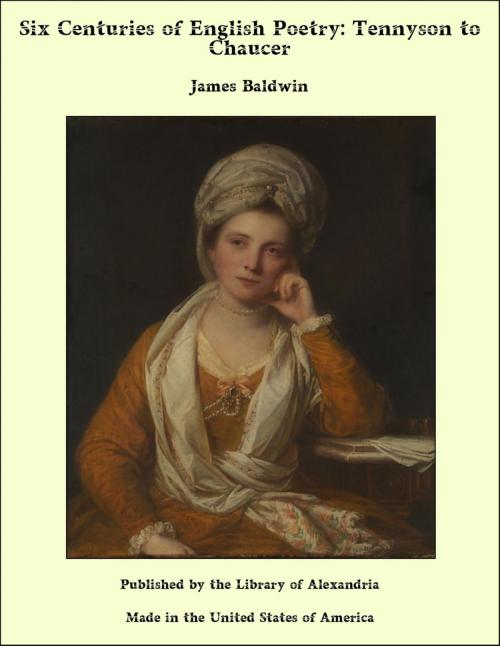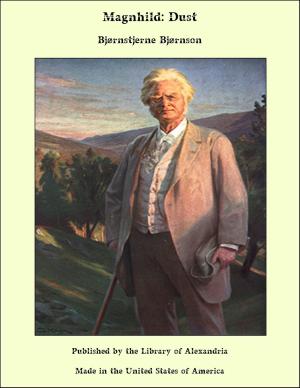Six Centuries of English Poetry: Tennyson to Chaucer
Nonfiction, Religion & Spirituality, New Age, History, Fiction & Literature| Author: | James Baldwin | ISBN: | 9781465614353 |
| Publisher: | Library of Alexandria | Publication: | March 8, 2015 |
| Imprint: | Language: | English |
| Author: | James Baldwin |
| ISBN: | 9781465614353 |
| Publisher: | Library of Alexandria |
| Publication: | March 8, 2015 |
| Imprint: | |
| Language: | English |
Now appeared the English romantic school, a sect of 'dissenters in poetry,' who spoke out aloud, kept themselves close together, and repelled settled minds by the audacity and novelty of their theories. They had violently broken with tradition, and leaped over all classical culture, to take their models from the Renaissance and the middle-age. They sought, in the old national ballads and ancient poetry of foreign lands, the fresh and primitive accent which had been wanting in classical literature, and whose presence seemed to them to be a sign of truth and beauty. They proposed to adapt to poetry the ordinary language of conversation, such as is spoken in the middle and lower classes, and to replace studied phrases and a lofty vocabulary by natural tones and plebeian words. In place of the classic mould, they tried stanzas, sonnets, ballads, blank verse, with the roughness and subdivisions of the primitive poets. . . . Some had culled gigantic legends, piled up dreams, ransacked the East, Greece, Arabia, the Middle Ages, and overloaded the human imagination with hues and fancies from every clime. Others had buried themselves in metaphysics and moral philosophy, had mused indefatigably on the condition of man, and spent their lives on the sublime and the monotonous. Others, making a medley of crime and heroism, had conducted, through darkness and flashes of lightning, a train of contorted and terrible figures, desperate with remorse, relieved by their grandeur. Men wanted to rest after so many efforts and so much success. On the going out of the imaginative, sentimental, and Satanic school, Tennyson appeared exquisite. All the forms and ideas which had pleased them were found in him, but purified, modulated, set in a splendid style. He completed an age.—Taine.
Now appeared the English romantic school, a sect of 'dissenters in poetry,' who spoke out aloud, kept themselves close together, and repelled settled minds by the audacity and novelty of their theories. They had violently broken with tradition, and leaped over all classical culture, to take their models from the Renaissance and the middle-age. They sought, in the old national ballads and ancient poetry of foreign lands, the fresh and primitive accent which had been wanting in classical literature, and whose presence seemed to them to be a sign of truth and beauty. They proposed to adapt to poetry the ordinary language of conversation, such as is spoken in the middle and lower classes, and to replace studied phrases and a lofty vocabulary by natural tones and plebeian words. In place of the classic mould, they tried stanzas, sonnets, ballads, blank verse, with the roughness and subdivisions of the primitive poets. . . . Some had culled gigantic legends, piled up dreams, ransacked the East, Greece, Arabia, the Middle Ages, and overloaded the human imagination with hues and fancies from every clime. Others had buried themselves in metaphysics and moral philosophy, had mused indefatigably on the condition of man, and spent their lives on the sublime and the monotonous. Others, making a medley of crime and heroism, had conducted, through darkness and flashes of lightning, a train of contorted and terrible figures, desperate with remorse, relieved by their grandeur. Men wanted to rest after so many efforts and so much success. On the going out of the imaginative, sentimental, and Satanic school, Tennyson appeared exquisite. All the forms and ideas which had pleased them were found in him, but purified, modulated, set in a splendid style. He completed an age.—Taine.















